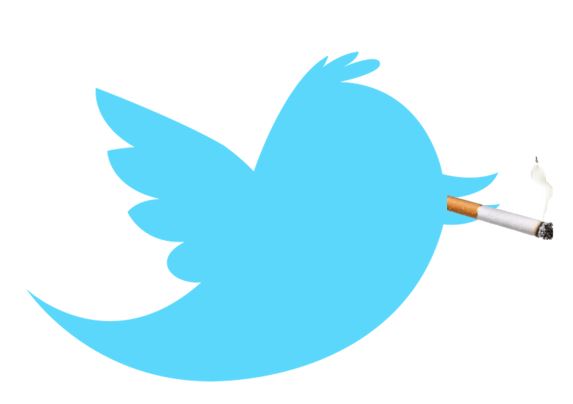Yes, Twitter is probably a good idea as part of your marketing strategy.
First, my Twitter bona fides: I have been managing Twitter accounts for clients (yes, for money) since 2009 and I have had my own Twitter account since 2010. These days, I’m running 15-20 Twitter accounts for various clients at any given time, and most of those clients are small-to-mid-sized B2B businesses which run the gamut from professional services, IT and finance, to retail, hospitality and even building trades. I have about 6800 followers of my own; each of my clients has between 1000-9000 – and those followers are rated 95% real, not just spammy #teamfollowback types.
In other words, I’ve had to be serious about Twitter for quite a while now (6 years practically qualifies me as an eminence grise in social media terms) and I’ve had to do it for a lot of different types of businesses.
7 pragmatic reasons your small/midsized business should be on Twitter
If you follow me on social media or know me in real life, you’ve probably heard me say, dryly, that some days I’m convinced that 85% of all non-1Direction-related tweets are generated by me and about 11 other social media managers, diligently tweeting away at each other. (The other 15% are a combination of Chris Brown defenders, mommy bloggers, and whatever spambot operation that JabberDuck company got to promote them on Twitter.)
There is a lot of noise and nonsense on Twitter.
However.
Twitter won’t instantly generate a zillion sales for an SMB company, especially in the B2B space. But here’s what it can do as part of the marketing strategy for almost any SMB:
1. Help boost your SEO: Google (and other search engines) indexes Twitter. Because tweets are updated (ideally) daily, they look current to search engines, which means they give them a decent ranking score. What’s more, they increase the sheer volume of content attached to your URL or business name, which makes Google think your company is more relevant than companies mentioned less frequently.
2. Helps keep your other social media channels looking current: By automatically feeding your tweets from Twitter to your Facebook page or LinkedIn profile or other social media, you can keep those channels looking up-to-date without actually having to create additional content.
3. Keep your website from looking dormant: Many SMBs don’t have the time, resources or inclination to update their website very often, so it can start to look a little cobwebby. Setting up an automatic feed from Twitter sends visitors the message that you’re very much an active, going concern.
4. Raise your profile among your target market, vendors, supplies, competitive set and prospective employees: Sure, people who aren’t on Twitter aren’t on Twitter. But I guarantee you that plenty of your stakeholders are paying attention, and a consistent Twitter account does drive awareness. And don’t underestimate the role of people like me: I may be ‘just’ a ghost-tweeter, but my clients depend on me to identify the key players and trends in their space, and I notice who’s doing what. Yes, it’s hard to measure ‘awareness’ and ‘profile’ – but they do matter and Twitter can make a difference.
5. Support your content strategy. How the heck are you going to promote your new blog post or media release if you haven’t built an audience on Twitter? I promise that almost no one is just going to accidentally stumble on it by going to your website directly, and only 323 people like your Facebook page. Twitter gives you access to an audience you just can’t get elsewhere without spending a lot of money.
6. Improve the thought-leadership profile of your CEO (or equivalent): In my experience, most CEOs (or presidents, founders, etc.) of SMBs actively look for speaking engagements or opportunities to expand their sphere of influence by networking. I can’t tell you how many small-business leaders I’ve seen get tapped for speaking engagements or keynote addresses because someone has noticed their Twitter/social media presence.
7. It keeps you on top of your game: Twitter, for all its faults, has the advantage of immediacy. Finding articles or information to tweet about forces you to keep up with what’s going on in your industry, and following the right people means your Twitter feed gets filled up with hot topics that are relevant to you. Both of these things mean you’re better informed and better able to spot trends in your industry earlier than you would otherwise.
Yes, there are certain SMBs for whom Twitter doesn’t make sense – but in the past 6 years the only times I’ve recommended against Twitter for SMBs was for companies in the B2B space who sold a highly-specialized product/service with a very limited target market, whose resources would be better spent marketing directly to those targets on an individual basis.
Now, go find your Twitter password.

